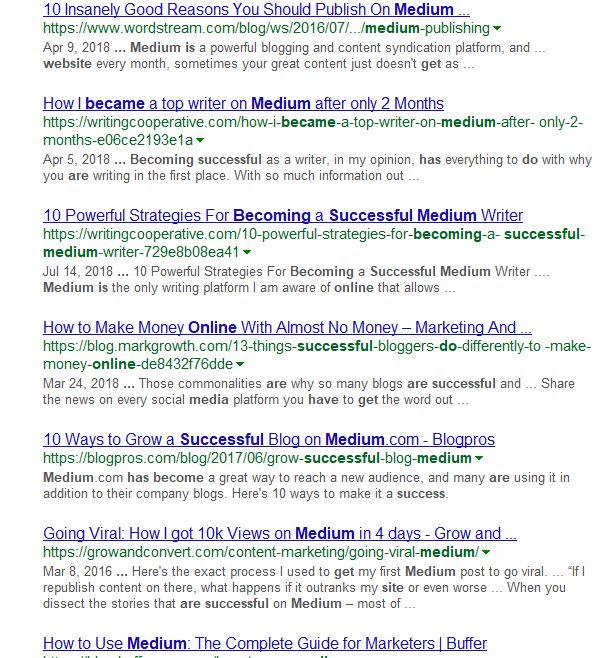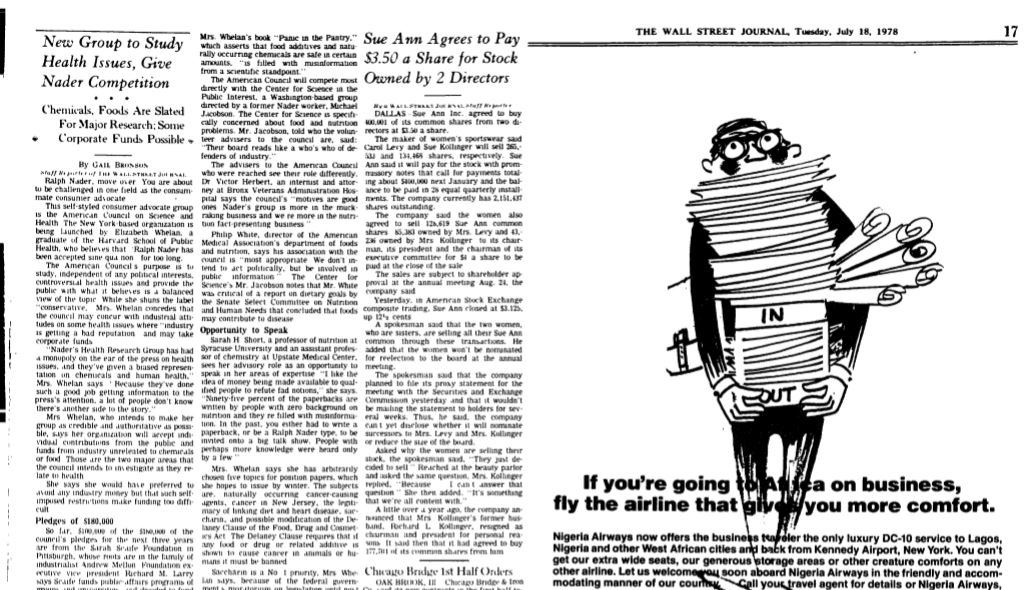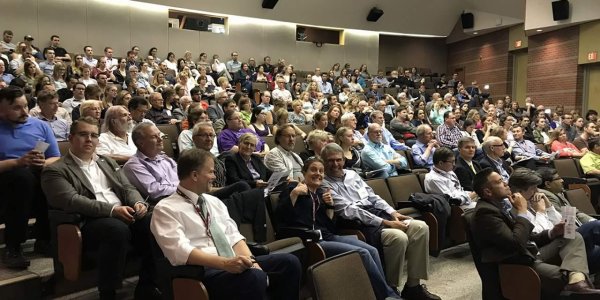As Science 2.0 approaches its 12th anniversary people have asked me about the reasons for its longevity. Some of if it just riding out the ups and downs of culture, of course, we are a boring but reliable science site, and obviously there was some luck. (1)
Our prestige was always high, our success was evident, and in 2015 the Trustees at the American Council on Science and Health asked me to become the second President of the organization. The co-founder had passed away and they had endured some tribulations prior to that but Science 2.0's maverick spirit had been pioneered by the Council in 1978, when a Wall Street Journal article (2) told Ralph Nader he needed to move over, there was a new consumer advocacy group in town and they were on the side of science. So they were a perfect fit and I wanted a new challenge. The gleaming lights of New York City beckoned so I committed to three years (3) and then stayed through the 40th anniversary Gala in Washington, D.C.
Of course, I missed a lot of time with my wife and kids. We live in California, New York is a long, uncomfortable flight when you are a small non-profit, and it's too expensive to fly every weekend. An apartment there was terrifically expensive and we made a family decision to have the kids remain in one of California's most livable cities, but that meant only seeing them a few days per month.
Now I am returning home. The Council is in a good place, the traffic went up 2000% in that time, the revenue went up 40% (but still losing money, so if you are a fan of no-nonsense rebuttals to scaremongering, send them a donation) and as I now think about the future I reflect on the past. Where is science media now?
The names have changed but much remains the same. A decade ago, if you were going to write about science you wanted to be on science sites like Science 2.0 or Scienceblogs.com.(4) Today, I see people write on general corporate sites Medium or Forbes and, to be honest, I don't get it. And that is not me being protectionist about my baby, years ago we gave The Conversation their own column here and promote their work because it's terrific. I am a free market person, competition makes everything better, including science literacy. I get why the general public write on places like that, they trade ease of use for monetizing their work,(5) I just don't get why scientists do.
Scientists and doctors already have jobs, if they are writing they want to be read. And academics are more likely to be averse to corporations. So why sign up to make a corporation money when you'll be doing as much work promoting your column as if you had your own blog? I love Forbes but it is at heart a free market publication, science is an after-thought. They pay a modest amount, $50 or something a month, if you get a deal from them. You will have to bring your own audience.
In both cases, your work lives or dies by their employees - if activists go to war on you, as happened to Genetic Literacy Project's Jon Entine on Forbes, they will just throw you off. They tried to do the same thing to me at USA Today, and a lawyer named Nathaniel Strauss, who is affiliated with the attack site Sourcewatch, even had a Wikipedia page written about me removed.
Independent non-profit science sites like this can't be bullied or intimidated by attacks on Twitter. Though 65 million Americans claim to be interested in science, only a tiny fraction are interested in funding it. During my time at ACSH I had to raise money through a contentious 2016 election, with 17 candidates on one side all raising money, and the election just concluded was the most expensive mid-term election in history. Politics are what individual donors give money to, science outreach is abstract, so if donors give money here it's because they want to fund mavericks. There won't be calls to take down an article because environmentalists got their friends in academic journalism to side with them on a petition to censor you.
What if you want to get into science media?
The one mistake people make is writing me and telling me they are good scientists and would be good communicators, if someone were willing to pay them. Well, you don't get a job playing guitar in a band because you promise to practice if someone will pay you, you get the job because you passionately did it on your own and honed your craft.
Do it for love and someone will pay you. I made good money writing years before I ever had an op-ed in USA Today. And I wasn't a good writer. I was a good listener so if I had a question about how I was trying to explain something, I wrote scientists and asked to talk to them.
(1) Including bad - I turned down a very sizable offer to sell it and did a Series A venture capital round instead, only to have the Great Recession remove $17 trillion from the economy three months later, which wrecked the advertising business model.
Do I regret that? No. When my wife saw the offer she said, 'You just told all these people you are going to revolutionize science communication and then 18 months later you'll be leaving. And then the company will change everything good about it. I know you won't like that.
(3) Which penalized this site. With no one "running" Science 2.0 sign-ups had been shut off. The reason was simple. Whereas a magazine or a newspaper has editorial responsibility for their content, we let scientists and doctors be responsible, but we still have some responsibility to make sure only credible people get an account. The hands-off approach hasn't always worked. Earlier this year, an article became controversial after anti-science activists got a political ally at Gizmodo to highlight it. The article was a poor attempt at satire of the alt-right but as Viggo Mortenson just learned about using the "N" word, even if you are doing it to show the problem, you sometimes just can't do it. Reactionaries were not interested in making sure Science 2.0 held to true north on our compass, none of them had ever written here, they were piling on to show how virtuous they were to their friends.
(4) And there was no playing nicely, often it seemed like Red Sox versus Yankees stuff, but they were well-paid bloggers at a media corporation reacting to a competitor so it's understandable. Still, the past is the past and when Seed declared they were giving up on Scienceblogs and closing the doors while negotiating a sale I told them Science 2.0 didn't have a lot of money because no one was running it but it had enough to keep their servers going and we'd do it just so their legacy didn't disappear. A few months later they wrote back and negotiated an acquisition.
(5) When I did a search for Google on what made Medium successful the first page was littered by SEO wonks talking about how to game Medium. They don't pay most of the writers and they expect you to bring your own audience, which is business smart.






